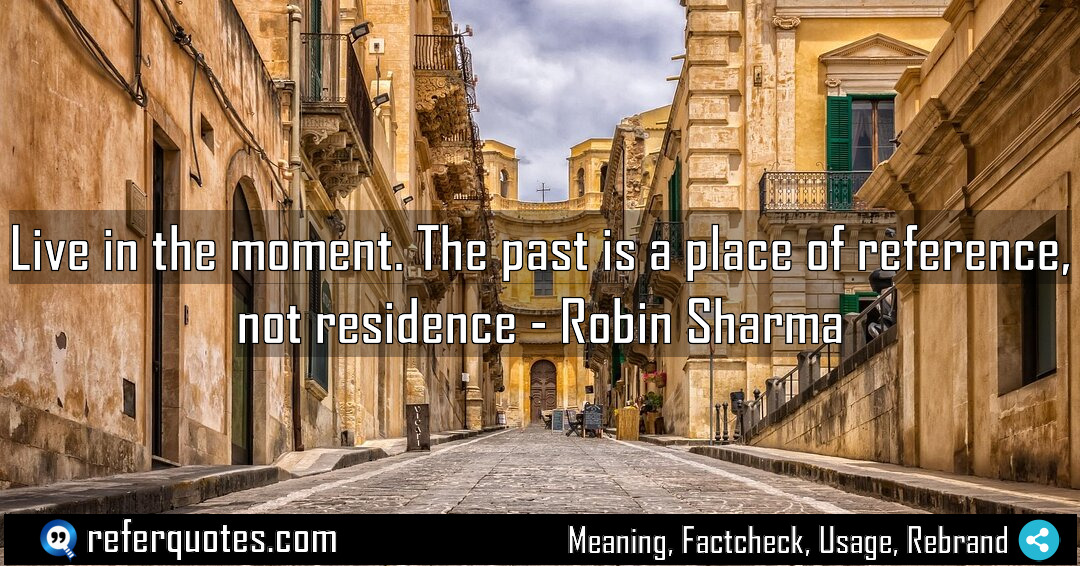Live in the moment is a powerful reminder to stop dwelling on what’s already happened. It’s about learning from the past without letting it control your present, freeing you up to actually engage with your life right now.
Share Image Quote:Table of Contents
Meaning
It’s a simple but profound two-part instruction: fully inhabit your present reality, and consciously choose to visit your past only for its lessons, not to live there emotionally.
Explanation
Look, I’ve seen so many people—clients, colleagues, honestly, myself included—get completely stuck replaying old mistakes or clinging to glory days. It’s a trap. What this quote does so beautifully is give us a practical framework. Think of your past as a library, not a living room. You go to a library to reference information, to learn something, and then you leave. You take that insight and you apply it to your life *now*. The real magic, the real progress, happens when you’re fully present in this moment, not when you’re a permanent resident in a place that doesn’t exist anymore. It’s the difference between being informed by your history and being imprisoned by it.
Quote Summary
| Context | Attributes |
|---|---|
| Original Language | English (3668) |
| Category | Spiritual (229) |
| Topics | mindfulness (31), presence (80), time (59) |
| Literary Style | poetic (635) |
| Emotion / Mood | peaceful (147) |
| Overall Quote Score | 88 (131) |
Origin & Factcheck
This one comes straight from Robin Sharma’s 1999 bestseller, “The Monk Who Sold His Ferrari.” It’s a cornerstone of the book’s philosophy. You’ll sometimes see similar sentiments floating around misattributed to Buddha or other spiritual figures, but the specific phrasing “place of reference, not residence” is definitively Sharma’s.
Attribution Summary
| Context | Attributes |
|---|---|
| Author | Robin Sharma (51) |
| Source Type | Book (4032) |
| Source/Book Name | The Monk Who Sold His Ferrari (51) |
| Origin Timeperiod | Contemporary (1615) |
| Original Language | English (3668) |
| Authenticity | Verified (4032) |
Author Bio
Robin Sharma built a second career from the courtroom to the bookshelf, inspiring millions with practical ideas on leadership and personal mastery. After leaving law, he self-published The Monk Who Sold His Ferrari, which became a global sensation and launched a prolific writing and speaking journey. The Robin Sharma book list features titles like Who Will Cry When You Die?, The Leader Who Had No Title, The 5AM Club, and The Everyday Hero Manifesto. Today he mentors top performers and organizations, sharing tools for deep work, discipline, and meaningful impact.
| Official Website | Facebook | X| Instagram | YouTube
Where is this quotation located?
| Quotation | Live in the moment. The past is a place of reference, not residence |
| Book Details | Publication Year: 1997; ISBN: 9780062515674; Latest Edition: HarperSanFrancisco Edition (2011); Number of Pages: 198 |
| Where is it? | Chapter: The Art of Living Now, Approximate page from 2011 edition: 153 |
